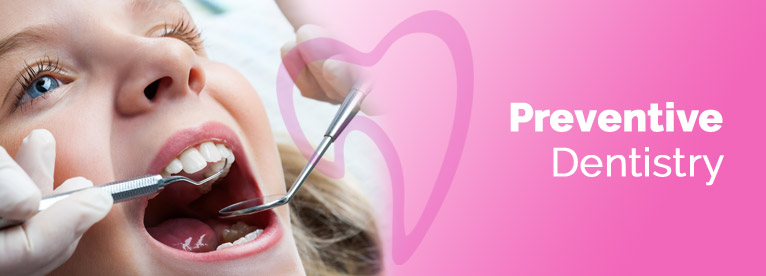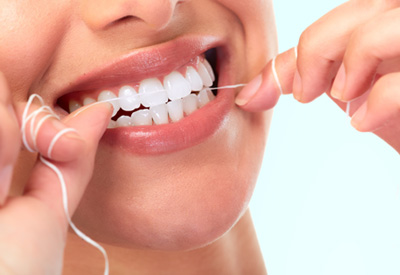
Regular Check ups:
Why regular check-up visits is important?
Visiting the dentist aims to maintain healthy teeth and bright smile for life. It is very important to choose a dentist that you trust and feel comfort. During your first visit our dentist will ask for full information about your Dental and medical health. The doctor then examines your case and explains the required needs of your teeth and sets your treatment plan.
Dental treatment plan will include:
Address the main reason for visiting the dentist (dental pain, cosmetic dentistry, cleaning or teeth whitening).
Address other problems in the mouth before they aggravate (such as removing decay before it reaches the nerve or extracting the tooth before it causes significant inflammation, etc.)
Preventive measures to avoid problems and pains (teeth cleaning and preventive fillings) .
Explaining how to maintain and care of teeth and gums (as explaining the correct way of brushing teeth, flossing).
Taking diagnostic X-rays:
The use of X-rays depends on your age, the extent of the disease and its symptoms. The X-ray helps your doctor in the detection of oral and dental diseases that cannot be seen by visual examination (such as the depth of tooth decay, damage to the jawbones, teeth penetration between the jaw bones and other teeth, tooth abscess, any tumors affect the mouth or jaws). In our dental clinics you will find X-ray machines that do not produce any significant amounts of radiation. Yet, You may have to wear a visor lead to protect yourself from any side effects may affect you as a result of your exposure to x-rays.In the case of pregnant women visit to the dentist, they must inform the dentist of their pregnancy , which shall be considered when using X-rays except in cases of extreme necessity.
Frequency of visit ?
If your teeth and gums are healthy; you often have to visit the dentist only once a year. If your doctor considers it necessary to provide specific treatment methods such as: dental filling, remove wisdom teeth, or repair a broken crown, you should Schedule your appointments with the specific dentist before leaving the clinic to avoid any problems in the future.
Teeth and Gums Cleaning and Polishing:
Good oral hygiene is important, not only for looks, but for general health as well. Poor oral hygiene can lead to a variety of dental and medical problems such as gum disease, infection, bone loss, heart disease, strokes and more.

One of the objectives of your visits to your dentist regularly is brushing your teeth fully. The oral and dental health specialist will to remove plaque and tartar accumulated under the gums, which may cause gum disease and tooth decay and bad breath and other health problems. It also includes the cleaning process to refine and polish your teeth. This procedure can be performed during your regular check up visit (every 6 months) and cleanings can prevent these problems as well as provide you with good oral hygiene.
Oral Hygiene Training:

“Prevention is the key to keeping your teeth healthy and your smile beautiful for a lifetime.”
At Ankura Dental hospital we emphasize the importance of understanding the root cause of your oral health problems and thereby imparting the right information to you in the form of “Oral hygiene instructions” in favor of developing healthy oral habits and terminating the causative ones.
Why Brush?
Brushing your teeth after meals and between-meal snacks not only gets rid of food particles, it removes plaque, the sticky film that forms on teeth. Plaque is made up of bacteria that produce acids that cause tooth decay and gum disease, so thorough removal of plaque is the main goal of brushing.
Using a fluoride toothpaste is also important because the fluoride reduces bacteria levels, as well as remineralizes tooth surfaces, making them stronger. Our dentist will instruct you on the proper method for brushing and recommend the best toothbrush for you. Generally, a brush with soft, end-rounded or polished bristles is less likely to injure gum tissue or damage the tooth surface. The size, shape and angle of the brush should allow you to reach every tooth.
Children need smaller brushes than those designed for adults. Remember: worn-out toothbrushes cannot properly clean your teeth and may injure your gums. Toothbrushes should be replaced every few months or when the bristles show signs of wear.
Why Floss?
 To prevent tooth decay and gum disease, plaque must be thoroughly removed from all tooth surfaces. Unfortunately, your brush can’t reach effectively between your teeth and under the gumline. Because tooth decay and periodontal disease often start in these areas, it is as important to floss on a daily basis as it is to brush.
To prevent tooth decay and gum disease, plaque must be thoroughly removed from all tooth surfaces. Unfortunately, your brush can’t reach effectively between your teeth and under the gumline. Because tooth decay and periodontal disease often start in these areas, it is as important to floss on a daily basis as it is to brush.
Flossing is a skill that needs to be learned. Do not be discouraged if you find it difficult at first. Our Dentist will help you learn to floss properly and give you tips on how to make it easier. With practice, you will find that flossing takes only a few minutes of your time each day.
There are also other types of interdental cleaners, such as thin spiral brushes or wedge-shaped wooden sticks that can be used to help keep your gums and the spaces between your teeth clean and healthy. Our Team will help you choose, and instruct you on the proper use of the oral health aides that are best for you.
Fluoride Therapy:
What is fluoride (flor-ahyd)?
Fluoride is a mineral that is naturally present in different amounts in almost all foods and water. Fluoride is also used in many dental products such as toothpaste and mouth rinses.
How does fluoride help stop cavities?
Fluoride works in two ways: topically and systemically. Topical fluorides (meaning fluoride put right on the teeth) strengthen teeth that are in the mouth. As fluoride washes over the tooth surface, it is added into the outer surface of the tooth, making it stronger which protects teeth from cavities.
Topical fluoride also helps protect and make the root surfaces less sensitive by adding fluoride into the naturally occurring “softer” root surface.
Systemic fluorides are those that are swallowed via food and water and are used by the body when the teeth are forming. If fluoride is taken regularly during the time when teeth are forming (6 months to 6 years-old), it will be added into the enamel layer (outer layer of the tooth) as they develop, creating a stronger, more cavity resistant tooth. Systemic fluorides also protect teeth topically; fluoride is in saliva, which is always washing over the teeth. Fluoride can help the tooth repair itself where it may have been damaged by acids early in the cavity process.
How can I get fluoride?
 Topical fluoride comes from toothpastes, mouth rinses, gels, and varnishes which are placed directly on the teeth. Children are usually provided with topical fluoride at their dental checkups.
Topical fluoride comes from toothpastes, mouth rinses, gels, and varnishes which are placed directly on the teeth. Children are usually provided with topical fluoride at their dental checkups.
Topical fluoride is one of the best ways to get fluoride to teeth. If you or your child has cavities or teeth that are sensitive to cold, our consulting dentist may suggest you a product that has more fluoride than products you buy at the store.
Systemic fluoride is available by drinking tap water that either has naturally occurring fluoride or has had fluoride added to help fight cavities. In communities without fluoridated water, people can purchase bottled water that has fluoride or our consulting dentist can prescribe fluoride tablets or vitamins. Remember, the fluoride must be swallowed to have systemic effects.
Who benefits from fluoride?
Everyone can benefit from fluoride’s ability to help stop cavities. If your community is considering fluoridating its water supply, supporting these efforts helps not only you and your children, but everyone in the community.
What to remember?
Fluoride alone will not prevent cavities; it is only one part of what is needed for strong teeth and good oral health. Brush your teeth at least twice a day with a fluoridated toothpaste, floss daily, eat a balanced diet, and limit how often you snack in between meals, especially on sweet and sticky foods. We strongly recommend a visit to our dentist regularly and follow his or her recommendations for your family’s dental care.
Pit and fissure Sealants:
 Sealants are a safe and painless way of protecting your teeth from decay. A sealant is a protective plastic coating, which is applied to the biting surfaces of the back teeth. The sealant forms a hard shield that stops food and bacteria getting into the tiny grooves in the teeth and causing decay.
Sealants are a safe and painless way of protecting your teeth from decay. A sealant is a protective plastic coating, which is applied to the biting surfaces of the back teeth. The sealant forms a hard shield that stops food and bacteria getting into the tiny grooves in the teeth and causing decay.
Introduction to pit and fissures …
The crinkles and dips in the tooth structure are called pits and fissures. Pits and fissures create hiding places for plaque bacteria, called stagnation areas, these bacteria feed on a sugary diet which in turn leads to tooth decay.

In many patients, the pits and fissures in the tooth surface can be very deep, which is difficult to clean with normal toothbrushing. If a child has a history of tooth decay, or their siblings have a vast decay pattern, our dentist may advise for a fissure sealant to be placed in these pits or fissures.
This is purely a preventative measure, which enables a smooth surface for the patient to clean effectively and a reduction in the need for pit and fissure restorations (fillings). It is usually placed in the pits and fissures of back teeth, where brushing is difficult.





